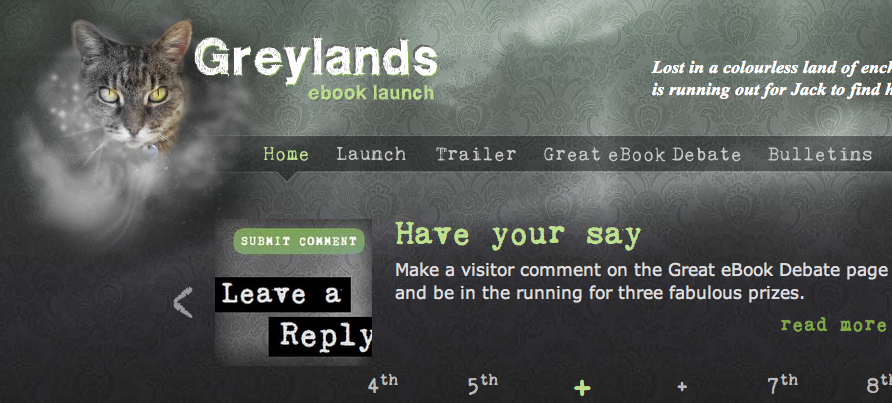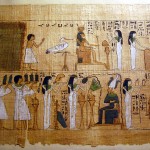Reposted from Melbourne High School Library blog.
A brilliant idea to build up to a launch of any sort is to make something happen before it. Even more brilliant is to bring all sorts of interesting people to the party and allow them to say something as creatively as they wish. Open this up to everyone else and you have The Great ebook debate on a website that was designed to self destruct within a month as an elaborate countdown to the launch of Isobelle Carmody’s much loved Greylands.
Isobelle explains:
An online launch seems to me the most divinely apt way to relaunch Greylands as an eBook. It was always one of my personal favorites among the books I have written, for reasons you will discover here, as the days pass, but it was out of print. Now books have always gone out of print and authors have always accepted they must, unless they rose into the heavens as classics. But in this brave new world of eBooks, there is no longer any need for any book to go out of print. Cyberspace is the library of the infinite.
In a strange twist of fate, following Isobelle’s gracious contribution to my students’ blog, I was honoured as one of the people contributing to the ebook debate. I pulled out my grandmother’s gorgeous autograph book, falling apart but full of exquisitely drawn illustrations and original poetry in Russian and German, and mused on what we’ve lost and what we’ve gained in terms of physical and digital resources. You can read it here if you are so inclined.
What is definitely worth reading is the line-up of authors and other interesting people who have unique perspectives about ebooks versus traditional print books. Guest writers are featured each week, and the resulting discussions in the comment sections are worth reading. But why read when you can contribute your views and enter into the debate yourself.
This week’s guest blogger is Gary Crew whose post is entitled The Storymaker. Hot off the press and already attracting comments, Gary joins the list of writers which includes Judith Ridge, Virginia Lowe, Paul Collins, Richard Harland, Nick Bland, Sophie Masson – to name only a few.
The only thing I don’t like about this whole enterprise is the fact that it will disappear very soon. It’s such a shame when there’s so much good stuff which should really be published, perhaps even as hardcopy, or even as an emagazine – what do you think?
Go on, have a look before it’s too late.
Thanks Isobelle.
[vimeo http://www.vimeo.com/43377736 w=400&h=300]




